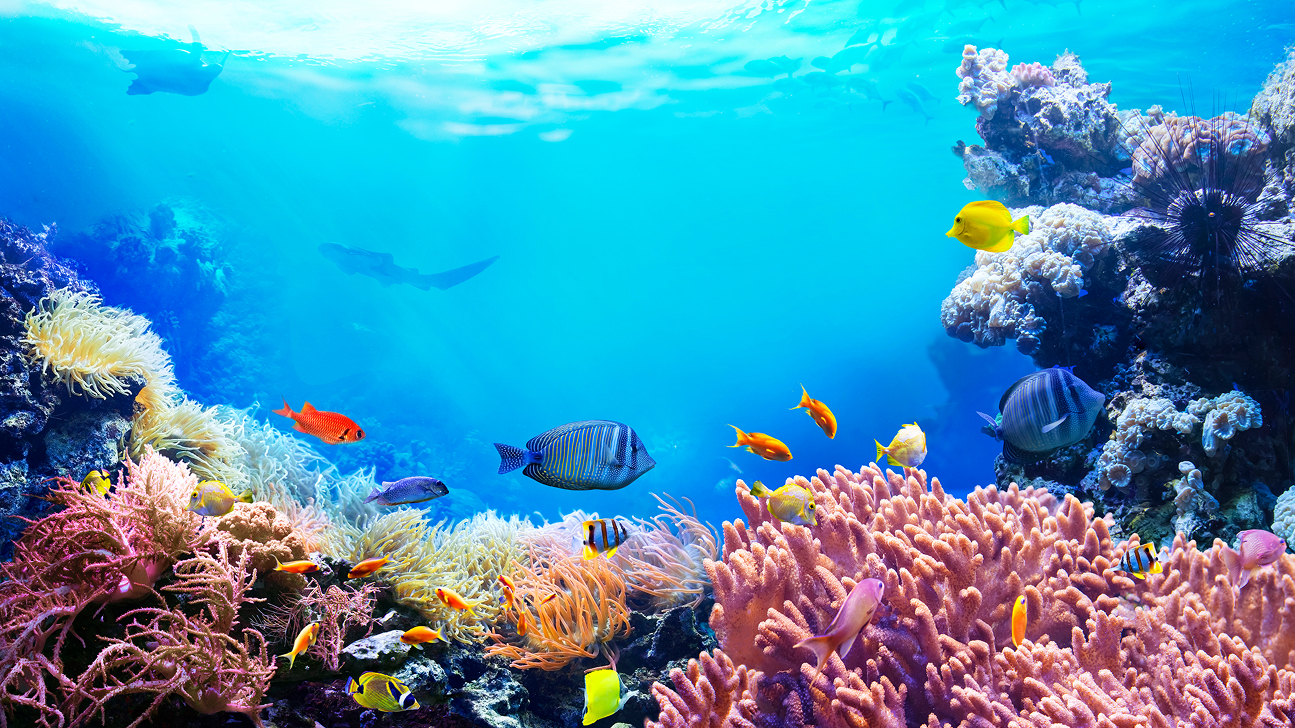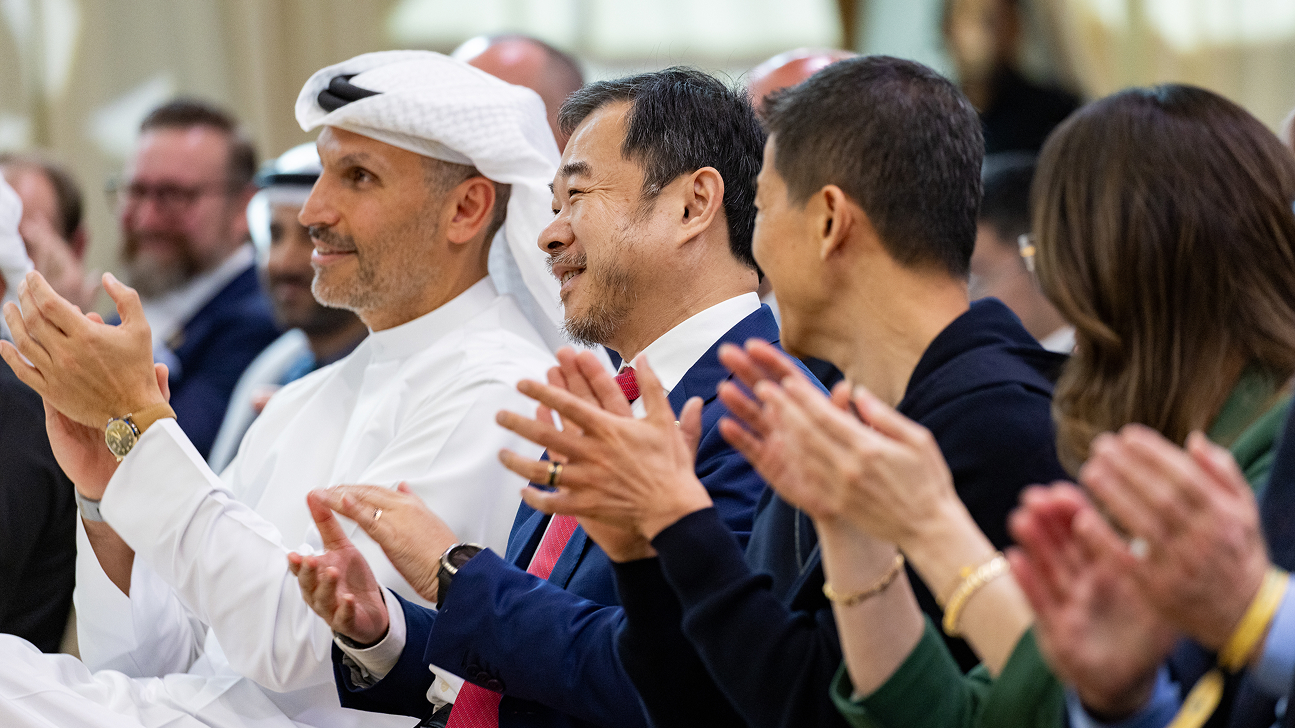AI for ocean health: how MBZUAI is helping preserve marine ecosystems
Monday, June 09, 2025

World Ocean Day, observed globally on 8 June, celebrates the vital role that the ocean plays in sustaining life and livelihoods. It also serves as a call to action — to protect the world’s marine ecosystems and support sustainable development.
Mohamed bin Zayed University of Artificial Intelligence is answering that call, playing a crucial role in developing and deploying AI technologies that can transform our understanding of the marine environment and support its conservation.
This understanding has become more critical than ever as the world’s oceans face growing threats from climate change, overfishing, pollution, and development pressures – positioning artificial intelligence (AI) as a key tool in turning the tide.
“AI is revolutionizing oceanography through several advanced applications,” says Hosni Ghedira, Professor of Practice of Computer Vision at MBZUAI. “It employs algorithms to analyze vast amounts of data from satellite imagery, underwater remotely-operated vehicles (ROVs), and sensors – identifying patterns and trends that traditional methods might miss.”
From surveying marine wildlife and mapping habitats, to predicting storm patterns and analyzing the effects of climate change, Ghedira and his MBZUAI colleagues are applying machine learning and computer vision to great effect.
“Machine learning models predict oceanographic phenomena such as currents and temperature changes, aiding researchers in understanding and anticipating ecological impacts,” explains Ghedira. “AI tools also monitor marine species and their habitats by analyzing audio and visual data, which supports biodiversity assessments and ecosystem health evaluations.
“Computer vision technology automates the identification and classification of marine organisms from images or videos – streamlining biodiversity surveys – while AI can also assist in modelling climate change effects on ocean systems, providing insights into future scenarios and guiding conservation efforts.”
These innovations support a wide range of sustainability goals: improving biodiversity assessments, supporting sustainable fisheries, enabling faster response to environmental events such as oil spills, and generating detailed models of marine ecosystems.
From algorithms to actionable insight
A key research goal for MBZUAI is to develop AI products that enhance sustainability efforts and advance AI as a global force for good. Dr. Mohamed Alloghani, Senior Advisor to the President of MBZUAI, explains that the environment and its ecosystems are important areas for focus, including the development of tools that can convert complex oceanographic data into actionable insights.
“These insights support applications such as precise habitat mapping, species identification, and climate event forecasting – enhancing decision-making for marine conservation and resource management,” he says, adding that oceans are only one part of the University’s ongoing research into sustainability, energy, and climate.
But while MBZUAI is making strides in this field, challenges persist – most notably access to good-quality data that will train and validate AI models, but also the integration of multimodal information.
“To address these issues, we’ve built robust preprocessing pipelines, used transfer learning to adapt models across different conditions, and collaborated with marine biologists to create rich, representative training sets,” says Alloghani.
“Overcoming these hurdles requires strong interdisciplinary collaboration and standardized data protocols. By uniting AI experts, scientists, industry leaders, and policymakers to share data and harmonize methodologies, we can streamline research efforts and accelerate innovation in marine science.”
MBZUAI’s research contributions and the UAE’s proactive approach to ocean sustainability are combining traditional environmental stewardship and modern technological innovation to make a positive difference.
From restoring mangrove forests to using AI for marine biodiversity mapping, the nation and its top institutions are leading ocean research into a new era – where algorithms aid conservation, satellites reveal ecological truths, and AI systems help us better understand and protect the seas that sustain us.
- machine learning ,
- sustainability ,
- computer vision ,
- climate ,
- algorithms ,
- oceans ,
- world ocean day ,
- water ,
- marine ,
- conservation ,
Related
MBZUAI marks five years of pioneering AI excellence with anniversary ceremony and weeklong celebrations
The celebrations were held under the theme “Pioneering Tomorrow: AI, Science and Humanity,” and featured events, lectures,.....
- celebration ,
- five year anniversary ,
- ceremony ,
- event ,
- board of trustees ,
- campus ,
- students ,
- faculty ,
MBZUAI and Minerva Humanoids announce strategic research partnership to advance humanoid robotics for applications in the energy sector
The partnership will facilitate the development of next-generation humanoid robotics tailored for safety-critical industrial operations.
Read MoreFrom Silicon Valley to social impact through science and education
Eduardo Beltrame reflects on his journey from Brazilian public education to Silicon Valley and MBZUAI, and why.....
- faculty ,
- social impact ,
- entrepreneurship ,
- computational biology ,
- biology ,
- Undergraduate ,
- digital public health ,


